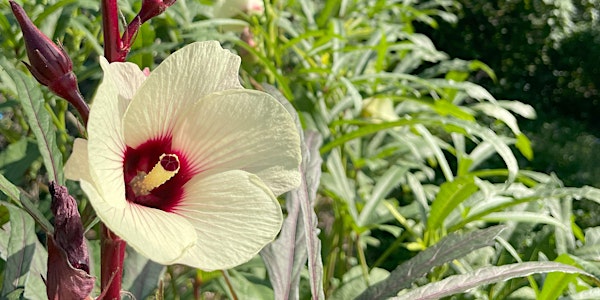Our Urban Farming 101 series of workshops is designed for those newer to farming and gardening, though the information may prove useful to those with more experience as well. The content focuses on urban environments, but many of the concepts are applicable to gardens anywhere. Children ages 13 and up are welcome to participate with an adult chaperone.
Tickets are free but required. Some tickets are reserved for NYC DOE teachers and NYCHA residents; please select the appropriate ticket group when registering (on the Monday before a workshop, any unclaimed tickets remaining in reserve will be released to the general public). We offer multiple events of the same workshop each month, so if one is full please check for other available dates. If you are a DOE teacher or NYCHA resident and can't find available tickets, please reach out to us at education@thebattery.org so we can work with you to find a solution. If you don't have a ticket but would still like to attend, you're welcome to drop in at the start of the workshop and if we have space we will include you; however, space is not guaranteed.
Plant Biology & Propagation
Gain a deeper understanding of plant structures and life cycles, and learn to propagate your own plants from division and cutting. Participants will have the option to take home some of the plants they propagate.
The Plant Biology & Propagation workshop will help you to:
- Recognize the common plant structures and how their changes can inform you about a plant's health
- Adapt your growing practices to the specific needs and life cycles of annual and perennial plants
- Transplant seedlings effectively
- Propagate plants through cutting, division, and air layering
- Care for your pruning tools
Location: Meet at the entrance to The Battery Urban Farm, marked on this map. Please note that Maps applications often misplace the farm entrance, so you should use these coordinates to help bring you to the meeting spot. Please also note that the northern side of the park is currently under construction, so you will need to enter the park along State Street (the map linked above outlines areas blocked off by construction).
What to bring: Please wear closed-toe shoes and any layers and sun protection you will need to be comfortable outside for the event. This program will occur light rain or shine; in the event of inclement weather, participants will be e-mailed in advance with notice of any changes.
COVID-19 Policy for Events:
- We encourage any event participants that are not vaccinated against COVID-19 to please wear a mask while participating in our public programs.
- We ask that participants stay home if feeling sick or if they've had a known COVID-19 exposure in the last 5 days.
Our Urban Farming 101 series of workshops features both virtual and in-person offerings each month throughout the season, covering the following topics:
- March: Crop Planning
- April: Soil & Seed Starting
- May: Plant Biology & Propagation
- June: Supporting Student Learning in the Garden
- July: Integrated Pest Management
- August: Native Plants and Wildlife Habitats
- September: Seed Saving
- October: Season Extension and Winter Growing
You can follow our account here on Eventbrite to receive an update each time a new workshop is available for registration.
This event and all other free programming is funded by donations to The Battery Conservancy. Donate here!
